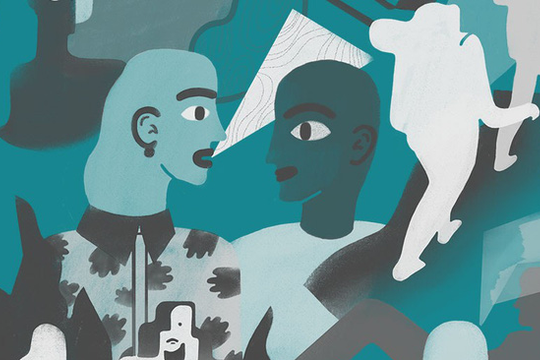Why do men always pay the bill when going on dates?
National Public Radio reporter Shereen Marisol Meraji recently went inside a professional etiquette class for teenagers in the country to find out if young people's thinking about politeness has changed from tradition.
 |
| Photo: Kim Hong Ji/Reuters |
The new era has certainly brought changes. "I can open the door myself. I don't understand why (a guy) should open the door for me (to be considered polite)," said 18-year-old Chiamaka Njoku. "Also, most doors are automatic."
But this young woman was less "progressive" when the topic turned to money. "If a guy wants to pay for the whole meal on the first date, I won't stop him," Njoku said. And she's not alone.
A 2014 poll found that 77% of people in a relationship believe the man should pay the bill on the first date. The poll, conducted by financial site NerdWallet, asked nearly 1,000 people who had been on multiple dates with their significant other for six months or more.
The survey found that in the early stages of courtship, the pressure to pay falls primarily on the man. But this inequality doesn’t disappear as the relationship progresses. 56% of men still pay the entire bill even when they are in a committed relationship. 36% of men pay all household bills when they move in together, compared to just 14% of women.
There isn’t much historical data on who pays on dates. But a survey conducted in 1985 found that little has changed in the last 30 years. Interestingly, this inequality in paying the bill has occurred despite the fact that over the past five decades, more women have entered the workforce and become the primary breadwinners. At least in the United States.
 |
| The notion that men pay on dates has changed little. (Photo: Market Watch) |
Between 1960 and 2011, the proportion of American households with a mother as the primary breadwinner nearly quadrupled. And while in 1977, 33% of respondents in the General Social Survey rejected the idea that men should work and women should stay home, by 2010, that had risen to 64%. But women still don’t want to pick up the tab when they date.
Some researchers have speculated about why, as the social landscape changes, men are still expected to pay the bill on dates. “When social roles start to change, people tend to only embrace changes that make their lives easier. They strongly resist changes that make their lives harder,” David Frederick, a psychology professor at Chapman University, told The Huffington Post.
“Who pays on dates… is an area where women can be more resistant to gender equality changes than men,” he added. Last year, Frederick co-authored a larger NerdWallet study, with 17,000 participants.
The study also found that men are the ones who pay on dates. In the study, he and his co-authors called paying on dates “a rare case” where women don’t have to defy traditional gender norms because it doesn’t benefit them.
This same logic could explain why men are willing to give up being the primary breadwinner, but not as keen on doing housework or childcare. Frederick’s study was also broader than NerdWallet’s, revealing the interesting fact that 39% of women surveyed admitted to hoping their boyfriends would turn down their offers to help pay the bills.
 |
| Money strongly influences men's views on sexual consent. |
Who pays on a date may not matter much—some even argue that men should pay the bill out of gallantry and respect for women. But there's reason to believe that this seemingly small form of gender discrimination and male "generosity" can lead to bigger problems.
A study conducted in 1985, published in the journal Psychology of Women Quarterly, presented participants with several imaginary dating scenarios, such as who initiated the date, who paid, where the date took place, etc. The researchers then asked the participants to rate the acceptability of the sexual activity that followed the imaginary date.
The results were disturbing, as the researchers found that money significantly influenced men’s views on sexual consensuality. “Coercive sexual behavior was rated as acceptable by men in situations where they had to pay the entire cost of the first date, rather than sharing it with their girlfriend,” the researchers concluded.
The research was done a long time ago, but the conclusions still hold weight today. According to The Atlantic, a recent study, conducted in 2010, found that men tend to think they will be "rewarded" with sex after asking their girlfriends on an expensive date.
Despite these troubling findings, David Frederick did find another piece of data that offered a positive signal. Nearly half of the men surveyed in his study said they would end their relationship with their girlfriend if she never offered to pick up the tab when they dated. He said this data was evidence that “a major shift” had taken place.
According to vntinnhanh/The Atlantic
| RELATED NEWS |
|---|








